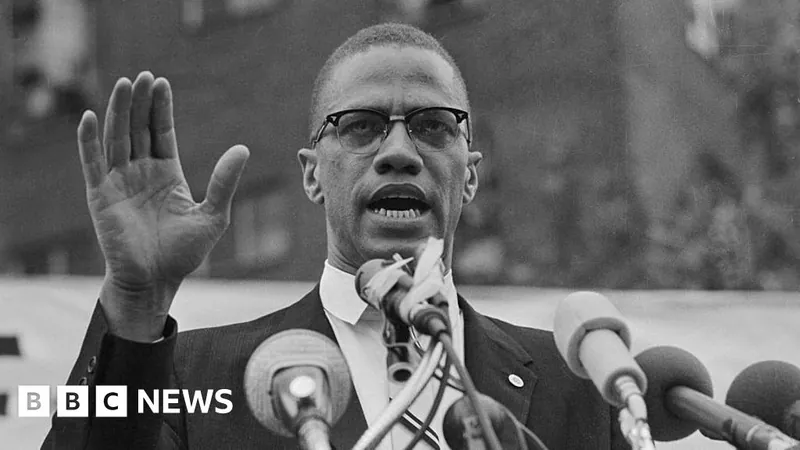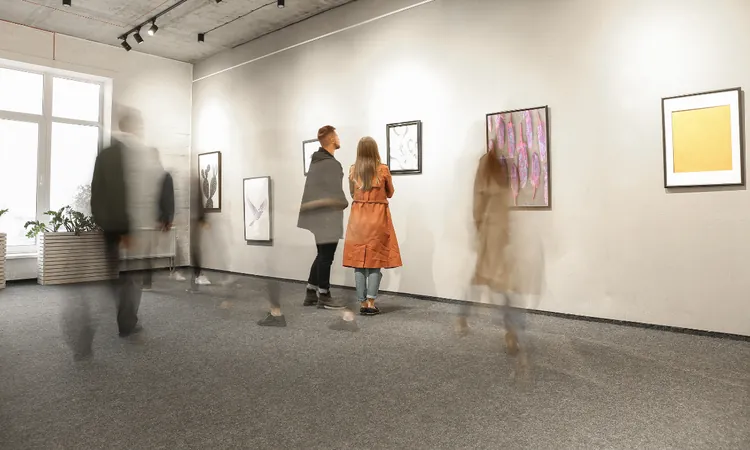
Is Your Partner 'Cushioning' You? Here’s How to Spot the Red Flags!
2024-11-27
Author: Amelia
Relationships can sometimes become stagnant, leading individuals to seek connections outside their primary partnerships, often without even realizing it. This phenomenon, known as ‘cushioning’, can have profound implications on love and intimacy.
Take, for example, the experience of Sara C., who found herself caught up in a flirtatious friendship with a coworker after being married for 14 years. The lines began to blur when regular coffee dates evolved into an emotional affair that eventually culminated in physical intimacy. Reflecting on her experience, Sara noted that she invested in a fantasy relationship, ultimately detrimental to her marriage.
Many relationships are plagued by stagnation, frustration, or boredom, leading individuals to connect with others in search of something missing in their emotional lives. According to a 2014 study published in *Computers in Human Behavior*, these ‘backburner relationships’ refer to individuals to whom someone feels a connection, but with whom they are not formally involved. It is a way of maintaining options, often fueled by the instinct to ensure a safety net in times of relational turmoil.
Marriage and family therapist Elisabeth LaMotte describes cushioning as a “premeditated version of rebounding.” This behavior typically stems from insecurity, causing individuals to seek validation outside their primary relationship instead of addressing the root issues. LaMotte elaborates that those involved in cushioning are often engaged in a secret flirtation that represents an exaggerated escape from their current challenges.
Take comedian Xaxier Toby, who once found himself seeking comfort in a friend of a friend during a rough breakup. “I jumped into backburner mode, delaying dealing with my feelings,” he confessed. Such behaviors can provide a fleeting sense of validation but ultimately distract from unresolved emotions, functioning like a temporary sugar fix with no real nutritional value for emotional health.
Dating coach Samantha Burns warns against the repercussions of cushioning, both for the current partner and the individual seeking outside attention. Addressing the deeper questions behind this need for validation can be vital for healing: Are you suppressing dissatisfaction in your current relationship? Are you looking for a distraction from the unhappiness in your life?
If you find yourself in this uncomfortable position, take a moment to reflect on your desires and feelings. Focus on open, honest communication with your partner rather than seeking solace outside your relationship. As Burns emphasizes, successful couples turn inwards to strengthen their bond rather than seeking connections beyond their partnership.
Recognizing these signs early on can help you navigate the complexities of your relationship dynamically. Rather than risk your commitment for a temporary thrill, initiating honest dialogue can pave the way for deeper understanding and renewed connection.
Don't ignore the signs! Identifying cushioning in your relationship can lead to pivotal conversations that transform your partnership for the better.









 Brasil (PT)
Brasil (PT)
 Canada (EN)
Canada (EN)
 Chile (ES)
Chile (ES)
 España (ES)
España (ES)
 France (FR)
France (FR)
 Hong Kong (EN)
Hong Kong (EN)
 Italia (IT)
Italia (IT)
 日本 (JA)
日本 (JA)
 Magyarország (HU)
Magyarország (HU)
 Norge (NO)
Norge (NO)
 Polska (PL)
Polska (PL)
 Schweiz (DE)
Schweiz (DE)
 Singapore (EN)
Singapore (EN)
 Sverige (SV)
Sverige (SV)
 Suomi (FI)
Suomi (FI)
 Türkiye (TR)
Türkiye (TR)